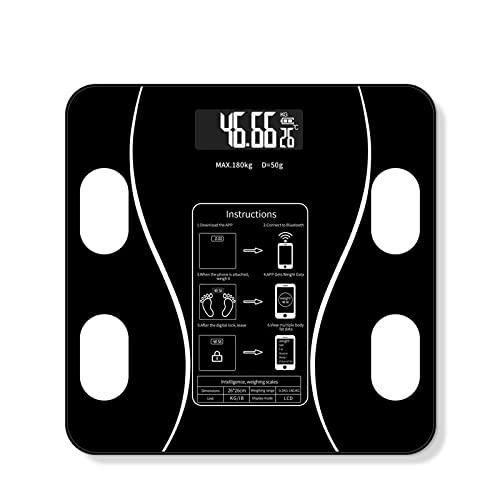Stationary Single Animal Scales. Stationary single animal scales are essential tools in the agricultural
industry, providing accurate weight measurements for individual livestock animals.
These specialized scales offer precision and reliability, enabling farmers and ranchers to monitor animal
health, manage feed rations, and optimize breeding programs.
In this detailed meta description, we will delve into the features, benefits, applications, and significance of
stationary single animal scales in livestock management.
Features of Stationary Single Animal Scales
- Robust Construction:
- Stationary single animal scales feature sturdy platforms and frames designed to withstand the weight and movement of livestock animals.
- Heavy-duty materials ensure durability and longevity, even in harsh agricultural environments.
- Large Platform Size:
- These scales come with spacious platforms to accommodate a single animal comfortably during weighing.
- Ample space allows for unrestricted movement of the animal, reducing stress and ensuring accurate measurements.
- High Weight Capacity:
- Stationary animal scales offer high weight capacities suitable for weighing large livestock animals such as cattle, horses, and pigs.
- The scales can accurately measure weights ranging from hundreds to thousands of pounds, depending on the model.
- Accurate Weighing Technology:
- Advanced load cells and weighing technology deliver precise weight measurements with minimal error margins.
- Digital indicators provide real-time readings, allowing farmers to capture accurate weights quickly and efficiently.
- Animal-Friendly Design:
- Stationary scales are designed with animal welfare in mind, featuring non-slip surfaces and low-profile platforms to ensure the safety and comfort of the animals.
- Smooth edges and rounded corners minimize the risk of injury during weighing operations.
Benefits of Using Stationary Single Animal Scales
- Animal Health Monitoring:
- Accurate weight measurements enable farmers to monitor the growth and health of individual animals over time.
- Early detection of weight fluctuations can indicate potential health issues or nutritional imbalances, allowing for timely intervention and treatment.
- Feed Management:
- Precise weight data obtained from stationary scales helps farmers adjust feed rations according to the nutritional needs of each animal.
- Optimal feeding strategies promote healthy growth, efficient weight gain, and cost-effective livestock production.
- Breeding Program Optimization:
- Stationary scales play a crucial role in breeding programs by providing accurate weight measurements for assessing the performance and genetic potential of breeding stock.
- Selective breeding decisions based on precise weight data contribute to the improvement of desirable traits and overall herd quality.
- Livestock Marketing:
- Farmers can use weight data from stationary scales to determine the market readiness of individual animals for sale or slaughter.
- Accurate weights ensure fair pricing and transparent transactions in livestock markets, benefiting both buyers and sellers.
- Regulatory Compliance:
- Compliance with regulatory standards regarding livestock weights is essential for farm operations and marketing activities.
- Stationary scales help farmers meet legal requirements for livestock weighing, ensuring adherence to industry regulations and standards.
Applications of Stationary Single Animal Scales
- Livestock Farms:
- Stationary scales are commonly used on livestock farms for routine weighing of individual animals, including cattle, sheep, goats, and pigs.
- Regular weight monitoring forms an integral part of livestock management practices aimed at optimizing animal health and productivity.
- Veterinary Clinics:
- Veterinary clinics and animal health facilities utilize stationary scales for weighing large companion animals, such as dogs, cats, and exotic pets.
- Accurate weight measurements assist veterinarians in diagnosing health conditions, prescribing medications, and monitoring patient progress.
- Research Institutions:
- Research institutions and agricultural universities employ stationary scales in scientific studies and research projects related to animal nutrition, physiology, and genetics.
- Precise weight data obtained from controlled experiments contributes to the advancement of knowledge in animal science and agricultural research.
- Livestock Auctions:
- Livestock auction markets utilize stationary scales for determining the weights of animals presented for sale or auction.
- Accurate weight measurements facilitate transparent transactions and fair pricing, enhancing market efficiency and integrity.
- Feedlots and Ranches:
- Feedlots and ranching operations rely on stationary scales for managing large herds of livestock and optimizing feeding programs.
- Weighing animals at various stages of production helps farmers track performance metrics, assess feed efficiency, and plan marketing strategies.
Importance of Choosing Quality Stationary Animal Scales
- Accuracy and Precision:
- Select stationary animal scales from reputable manufacturers known for their accuracy and precision in weight measurements.
- High-quality scales deliver reliable data crucial for informed decision-making in livestock management.
- Durability and Reliability:
- Invest in scales constructed from durable materials capable of withstanding the rigors of daily use in agricultural settings.
- Robust construction and quality craftsmanship ensure long-term reliability and minimal downtime.
- User-Friendly Operation:
- Choose scales with intuitive interfaces and user-friendly features that simplify operation and minimize training requirements.
- User-friendly design enhances efficiency and productivity during weighing operations on the farm.
- Service and Support:
- Opt for scales backed by excellent customer service and technical support from the manufacturer or authorized dealers.
- Prompt assistance and responsive support ensure timely resolution of any issues and maximize scale performance.
- Compliance with Standards:
- Ensure that stationary animal scales comply with relevant industry standards and regulatory requirements for livestock weighing.
- Compliance with standards ensures the accuracy, reliability, and legality of weight measurements for farm operations.
Conclusion
In conclusion, stationary single animal scales are indispensable tools for livestock farmers, veterinarians,
researchers, and agricultural professionals involved in animal management and production.
These scales provide accurate weight measurements essential for monitoring animal health, managing
feed rations, optimizing breeding programs, and facilitating transparent transactions in livestock markets.
When choosing stationary scales, prioritize accuracy, durability, user-friendliness, and compliance with
industry standards to ensure reliable performance and maximum benefit in livestock management practices.
With stationary single animal scales, farmers can optimize productivity, improve animal welfare, and
enhance profitability in their agricultural operations.
We are located at University Plaza Room A18 Bombo Rd, Wandegeya – Kampala
For more details please contact us on ; +256 (0) 700225423
+256 (0) 787089315
Or email us at:[email protected]








